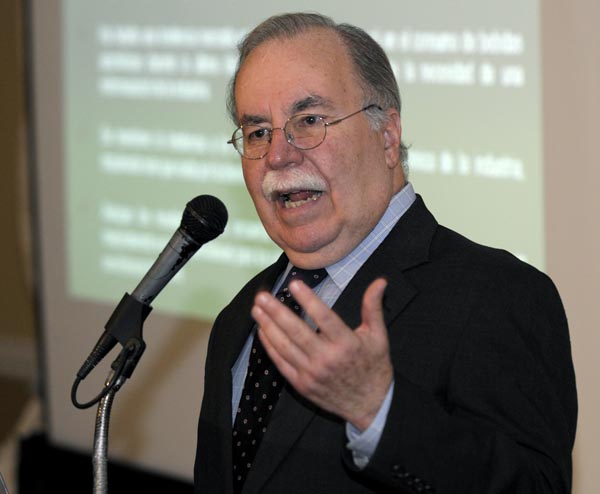
Our nation’s veterans have served our country proudly and bravely. They are true American heroes, and we must make sure that we’re doing everything possible to support them once they reenter civilian life.

I was recently reading the January 2014 publication “Perspectivas“ from Estudios Técnicos and came across a quote that inspired me to write this letter.

The Internet, all throughout its 55-year history, has been visualized in so many disparate ways. The more it evolves the more job descriptions it gets.

E-mails with no response are a frustrating part of running an online business.

The concept of crowdfunding for new technological ventures is here to stay and, according to latest analysis of activity, the field is becoming, well…crowded.

Dilemmas come in all forms and sizes when it comes to deciding how to push forward a brand in the environs of cyberspace.

I was glad to see the story on H. Calero’s views on the IT industry. The communications and information technology (C&IT) industry has been the focus of attention in a number of studies at least going back to the 1999-2000 A.D. Little/Estudios Técnicos Inc. study on S&T based economic development strategies.

As the Internet expands and is populated by more and more users, as digital tools become ever more sophisticated and multi-purpose, the drive to get the business message out into the vastness of cyberspace — in an adequate fashion — is no easy task.

A little over a year ago, I made a tough decision: I decided to leave my safe, secure job to pursue a master’s degree full-time in England. This is not the sort of choice one takes lightly. It takes extensive planning and considerable tenacity.

The business world is becoming evermore digitized. Soon, old invoices, query letters, cancelled checks, or accounting records will no longer lay archived in those even older file drawers. Even the big stack of printed resumes has gone the way of the obsolete yellow pages book.

Across America, there are thousands of veterans and transitioning service members looking to start their own businesses. These men and women are proven leaders and we know that they make outstanding business leaders.

Some 25 years have passed since the birth of the World Wide Web and it’s spawning of personal, informational and business Web sites by the millions.




NIMB ON SOCIAL MEDIA